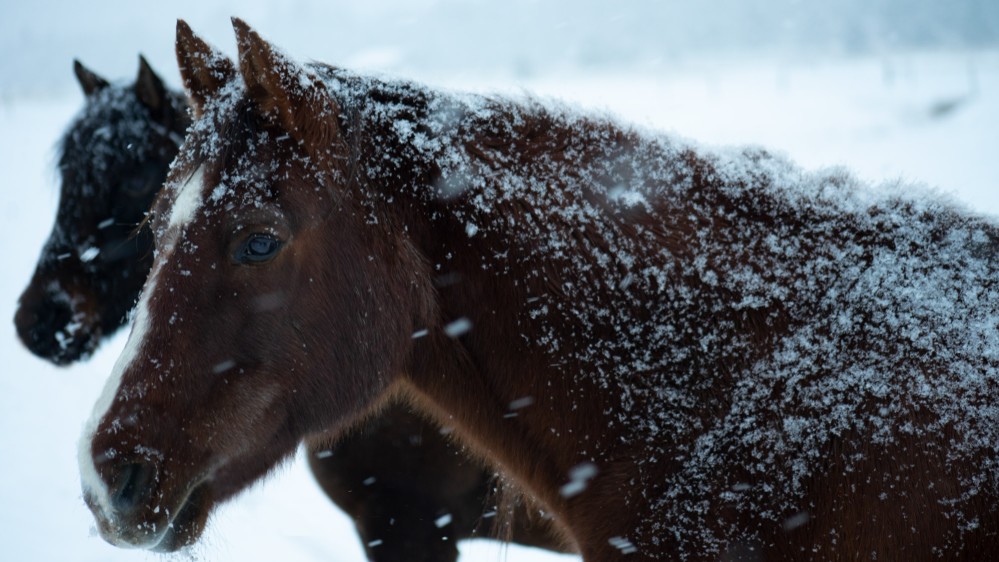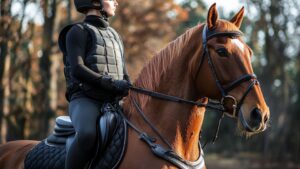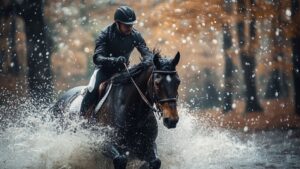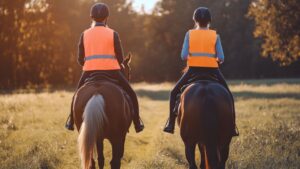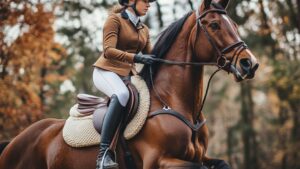The Morgan horse, one of the oldest and most versatile American breeds, is renowned for its stamina, friendly disposition, and versatility. The Morgan embodies the spirit of American heritage. It was one of the earliest breeds of horses in the United States and was primarily known as the all-purpose horse; the Morgan breed is more than comfortable both in and out of the saddle, in a harness, on the race track, or working in the fields.
A friend of mine had recently acquired a Morgan horse, and I was curious to see this remarkable breed up close. Watching her interact with the horse, a stunning bay named Jasper, I was struck by his intelligence and gentle nature. He seemed to have an innate understanding of her commands, responding with enthusiasm and grace. This experience opened my eyes to the Morgan horse’s exceptional versatility and strong bond with humans.
So, what is the history of the Morgan horse? Let’s delve in!
History & Origin of the Morgan Horse
Justin Morgan owned the first Morgan horse in the late 1700s in New England, United States (where the name Morgan Horse originates from). To this day, the exact pedigree of the horse is unknown, but based on its traits and stature, it is assumed that the Morgan horse mainly originated from Arabian and thoroughbred bloodlines. However, it has now been discovered that the Morgan horse carries the bloodlines of the Welsh cob and Friesian horse. Owning a horse like the Morgan means being part of a rich tradition that combines history, versatility, and the beauty of multiple esteemed bloodlines.
What’s unique about the Morgan Horse is that its development was not the result of a planned effort of breeders to produce a particular breed of horse designed to help maintain the local area and families. The Morgan horse is one of nature’s secrets; no unique breeding formula exists.
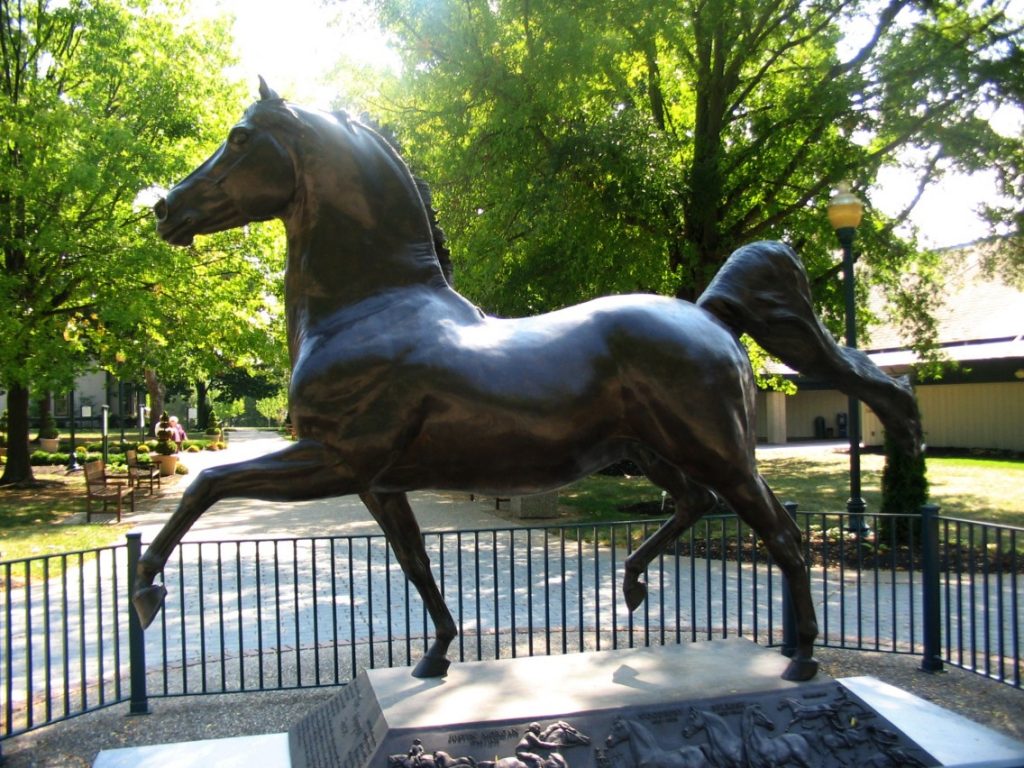
2 quick facts
- It was only during the 19th and 20th centuries that Morgan Horses were exported to other countries, including England, where the bloodline of the Hackney Horse originates from.
- To protect the development of the breed, the US Department of Agriculture founded the US Morgan Horse Farm in Vermont, which is dedicated to the safe breeding and preservation of the Morgan Horse
Anyway, back to the history…
The Morgan horse has adapted to the changing nature of society, sticking to its label of the all-purpose horse. Originally, these horses were used for plowing fields and as a main mode of transportation. For example, they were often used to pull family carts. Fast-forward to the process of industrialization, the horses’ capabilities on the race track were discovered, and their resilience came alive when they were used in the cavalry during the American Civil War. Today, Morgan horses can be found in almost every equestrian sport… but we’ll return to that moment.
Morgan Traits and Features
The Morgan horse is used for various purposes, so it is natural to find variations in the size of present-day Morgans. However, Morgan horses still have an amazing set of unique characteristics that distinguish them as a breed.
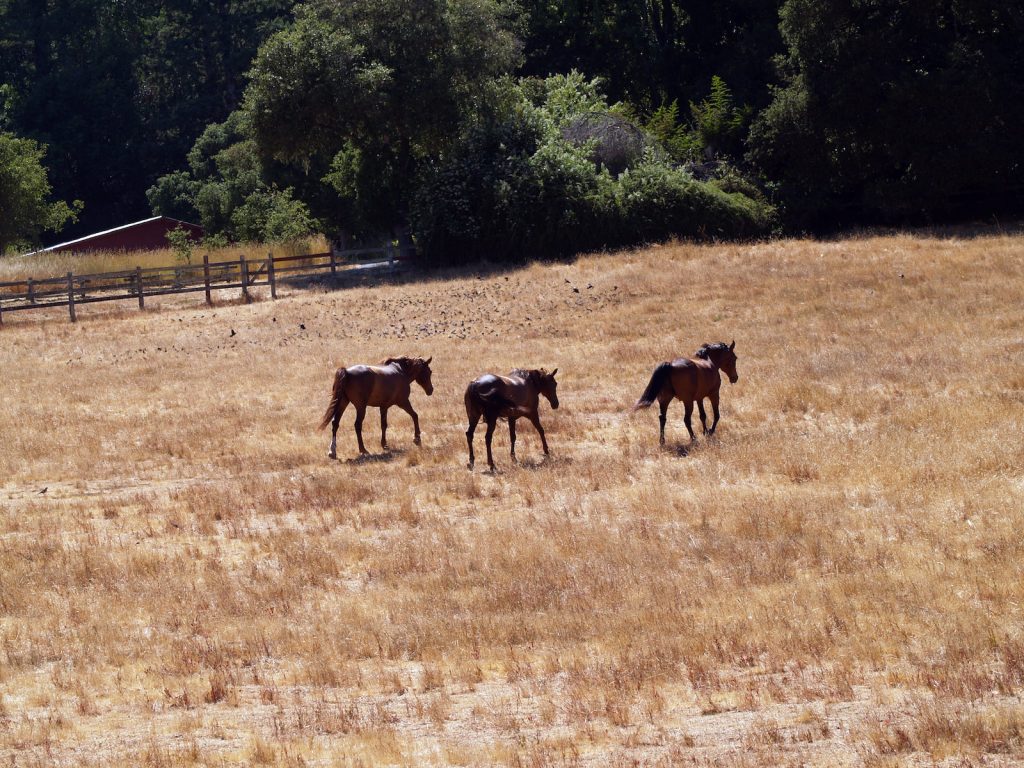
Two colors of Morgan horses competing
These include:
- Standing between 14-15 hands in height
- Strong and muscular body
- Regal posture
- Expressive head
- Well arched neck
- Athletic nature
- Versatile
- Cooperative nature
- Pleasant disposition
- Dark and solid coat colors – bay, black, and chestnut are the breed’s most common colors. However, some breeders also specialize in producing palomino, grey, dun, and roan, which are less common
Maintenance and owning a Morgan horse
A great trait of the Morgan Horse is that they are known for being relatively low maintenance. Depending on how you use them, they tend to need less feeding than other breeds. For example, if you are looking to compete, then you will need a strict diet and daily routine for your horse, and as with any type of horse, it is recommended that sweet feeds are kept to a minimum to keep your horse in peak health condition. Check out our blog post on Helping Horses to Eat Healthy for more information. Another reason why the Morgan Horse is a great breed to have is that they are at no high risk of disease or health issues within their bloodline, and most species live past 30 years old.
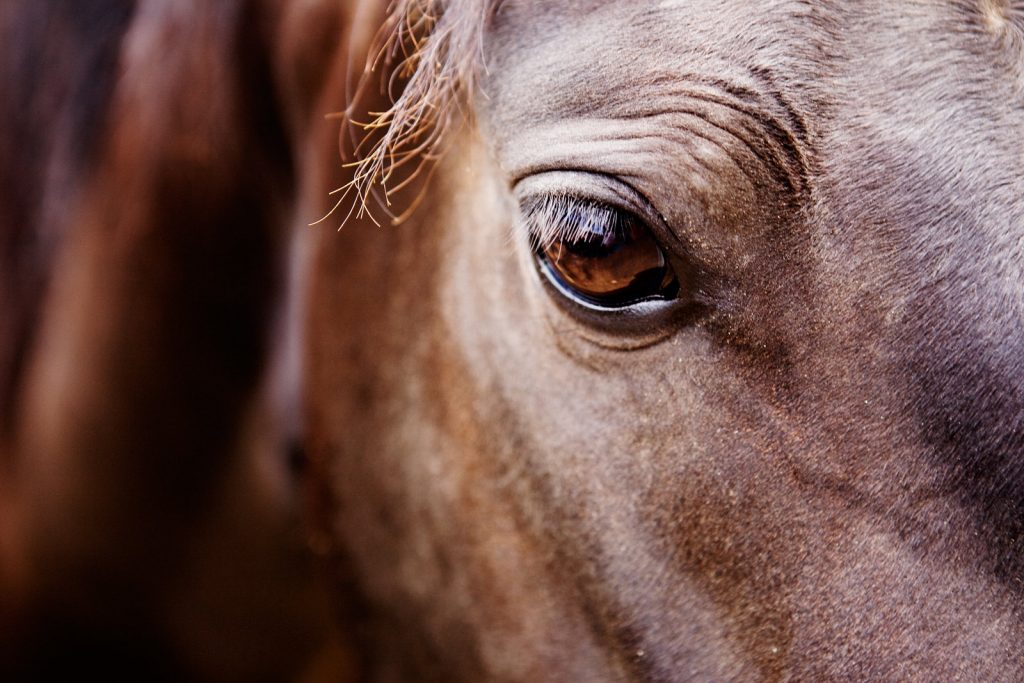
Racing and Sport
So… why are Morgan Horses so special? (If you’re not already convinced) Despite its great history, there are many things that make the Morgan Horse one of a kind, and we can expect to see it thriving for generations to come. These horses are great competitors and dominate almost every modern equestrian sport. From side-saddle classes and under-saddle racing to dressage, jumping, and driving classes, the Morgan Horse is a force to be reckoned with in the competitive field.
The organ is especially successful in the driving classes. One of the most challenging competitions for any horse is a three-day competition that includes a dressage test, followed by a marathon where the horses must navigate the obstacles and narrow trails over a 5-13-mile course. These competitions test the horse’s mental and physical capabilities, and for the Morgan Horse, this is where they thrive! During the 1980s, the stallion HvK Courageous Flaire Morgan was the world champion for this event. He dominated the field and captured the hearts and eyes of spectators with his muscular stature, gleaming coat, and outstanding performance.
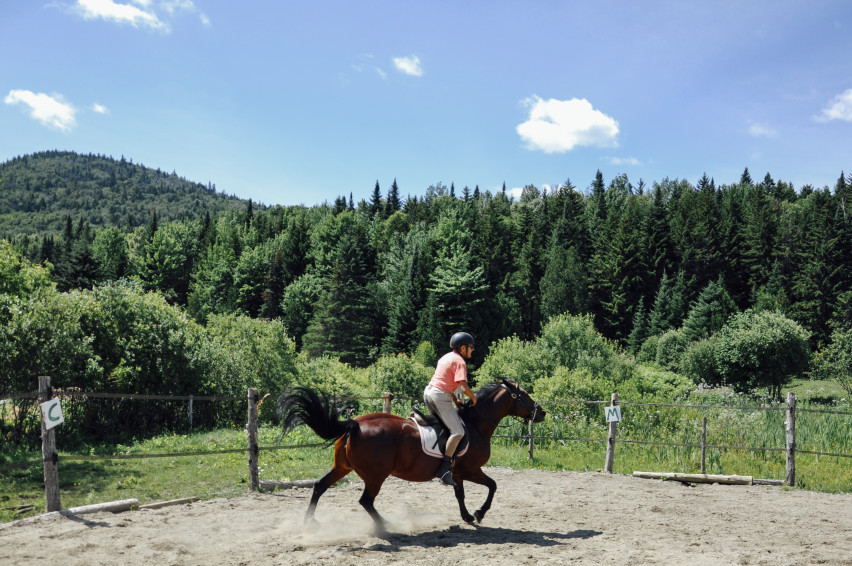
Morgan Horse racing – The HvK Courageous Flaire in action
The original Morgan horse was a dark bay with black legs, mane, and tail. His head is expressive, he has prominent dark eyes, and he is lively and pleasant. His ears were small, pointed, and erect, and his round body was close-ribbed and athletic.
Fun Facts about the Morgan Horse
The original Morgan was a beautiful animal renowned for his looks and manners! It was claimed that he could outrun any horse and out-pull most horses. The original, known as Figure, lived in an era of horses rather than one of the power machinery we are used to today. During this time, most roads and trails were rough and uneven and only accessible on foot. These conditions called for an extremely versatile type of horse so that workers could transport loads easily and families could have a reliable form of transport. The Morgan horse helped accelerate business agriculture and brought convenience to the social lives of many before industrialization. This breed of horse was an irreplaceable part of communities and families.
The Morgan horse is celebrated for its rich history and promising future, combining striking beauty, remarkable versatility, and a superb temperament. Known for its elegant appearance and adaptability, the Morgan excels in various disciplines, from dressage to driving and trail riding. Its friendly and willing nature makes it a cherished companion for horse enthusiasts, whether for competitive events or casual riding. This breed’s enduring appeal lies in its ability to blend stunning looks with a dependable and versatile disposition, ensuring its place as a favorite among horse lovers.
